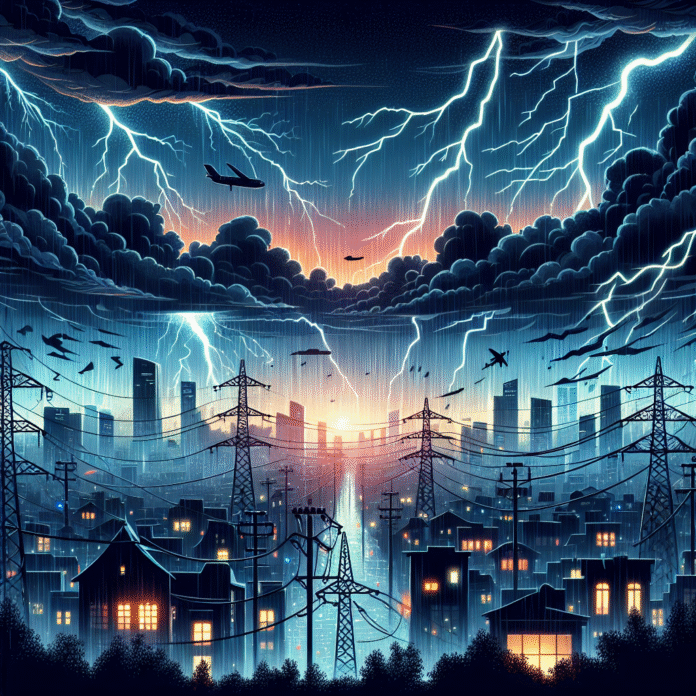Impact of Extreme Weather on Power Outages
“`html
Climate Matters: Extreme Weather is Causing More Power Outages
Extreme weather events, exacerbated by climate change, are leading to an increasing frequency of power outages across the globe. As temperatures rise and weather patterns become more erratic, utility companies are finding it increasingly challenging to maintain reliable service.
The Impact of Extreme Weather on Power Infrastructure
Severe storms, hurricanes, wildfires, and heavy snowfall can all damage power lines and substations, leading to widespread outages. According to the U.S. Department of Energy, over the past decade, the number of major power outages has significantly increased, with extreme weather being a primary contributing factor. For instance, hurricanes can bring down entire power grids, while wildfires can lead to proactive shutdowns of power lines to prevent ignitions.
Recent Statistics and Trends
Data from the National Oceanic and Atmospheric Administration (NOAA) shows that the number of billion-dollar weather disasters in the United States has risen sharply, coinciding with an uptick in power outages. In 2021 alone, there were 22 separate weather events that caused at least $1 billion in damages, many of which resulted in significant disruptions to electricity supply.
Utility Companies’ Response
In response to these challenges, utility companies are investing heavily in upgrading their infrastructure. This includes strengthening power lines, implementing smart grid technologies, and enhancing weather forecasting systems. Additionally, many utilities are working on improving their emergency response strategies to restore power more quickly after outages occur.
The Role of Renewable Energy
Transitioning to renewable energy sources such as solar and wind can also play a role in reducing vulnerability to power outages. Decentralized energy systems, such as local solar panels, can provide backup power during outages and lessen the strain on the traditional grid. Communities are increasingly adopting microgrid systems that can operate independently in times of crisis.
Community Preparedness and Resilience
As extreme weather becomes more common, community preparedness is essential. Local governments and organizations are encouraged to develop comprehensive emergency plans that include communication strategies, resource distribution, and community support during outages. Educating residents about how to prepare for potential power disruptions can also enhance resilience.
Conclusion
With the effects of climate change becoming more pronounced, the relationship between extreme weather and power outages is likely to continue intensifying. Addressing these challenges requires a coordinated effort from utility companies, government agencies, and communities to build a more resilient and sustainable energy future.
“`


